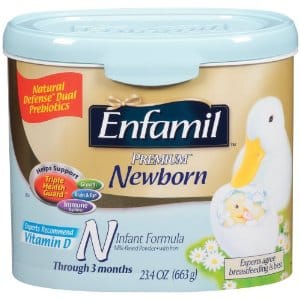
Ten day old baby Avery died on Sunday after being rushed to the hospital when he displayed signs of lethargy and a ‘stomach ache’.
The doctors at the hospital found after preliminary tests that the baby had contracted a rare bacteria, Cronobacter sakazakii which can come from powdered infant formula contaminated with the bacteria. Avery’s condtion deteriorated and he died on Sunday after life support was removed.
When the local Walmart was notified of the child’s death, they immediately removed the product from their shelves but the corporate office of the retailer went a step further.
“Out of an abundance of caution, we have removed the remaining product from that store’s shelves and we are also notifying all other stores across the country to remove product of the same lot number as well,” Walmart spokesperson Dianna Gee said.
She added that any person who had purchased the formula could return and get a full refund or exchange it for another brand.
She also said that as soon as they got the news of the infant death the Walmart team contacted Mead Johnson Nutrition, the maker of Enfamil Newborn, and the Missouri Department of Health and Senior Services to provide any information helping investigation.
If you are currently bottle feeding your baby formula or plan to, PLEASE check out the World Health Organization’s website for more information on safe preparation of infant formula.
They say,
Powdered infant formula (PIF) has been associated with serious illness and death in infants due to infections with Enterobacter sakazakii. During production, PIF can become contaminated with harmful bacteria, such as Enterobacter sakazakii and Salmonella enterica. This is because, using current manufacturing technology, it is not feasible to produce sterile PIF. During the preparation of PIF, inappropriate handling practices can exacerbate the problem.
In the downloadable PDF they recommend that parents who will be formula feeding chose sterile liquid infant formula, especially for those who are at the highest risk of infection.
In the United States of America, an incidence rate of 1 per 100 000 infants for E. sakazakii infection has been reported. This incidence rate increases to 9.4 per 100 000 in infants of very low birth weight, i.e. <1.5 kg (FAO/WHO, 2006).
Related Articles:
- Mother Fights Rare Cancer Diagnosed During Pregnancy
- Pregnant Six Times in Five Years – Birth Control Ineffective for One U.K. Mother
- Brighton Moms Brave the Cold and Stage a Flashmob Demonstration






